Public Talks 1. Can I see wholly? - 16 July 1972 Duration: 71 minutes • Do we act casually, expecting division to end as a result of outer environment? • Does change demand immediate attention and action? • Freeing of the mind from conditioning and in that freedom bringing about a cooperative action. • Can one who is conditioned by the past change totally? • Will change come through analysis or is there a totally different approach? • Is time needed to have relationship in which there is love and not division? • Does one of the many fragments of the 'me' assume authority or is the mind free to look? • Observation not investigation. • Is there analysis if there are no parts? Is analysis a waste of time? Questions from the audience followed the talk. 2. What is it to be creative? - 18 July 1972 Duration: 76 minutes • Not being deeply creative we escape from the fact of deep frustration. • Is there insight only when the mind is free of belief? • Insight without conclusion is creative action. • Why does thought draw conclusions from insight and cling to the structure of control? • I am isolated when I resist. Is aloneness insight into isolation? • Moving in insight, relationship changes. • Freedom from images is responsibility and love. • The brain needs security to function. There is security in insight, which brings intelligence. • When you don't compare, what are you? Questions from the audience followed the talk 3. Thought and its limitations - 20 July 1972 Duration: 85 minutes • Can thought investigate something which is not of time, experience and knowledge? • What is the mind that can enter into the dimension which has no word? • Can there be a harmony in which division does not exist between the known and freedom from the known? • Is the mind such a slave to words that it cannot see the movement of thought without the word? • Will knowledge bring about a better world when used with the 'me'? • When the body dies what happens to thought? • If I am aware that I am neurotic, in that awareness am I neurotic? Questions from the audience followed the talk 4. Can the mind be totally unconditioned? - 23 July 1972 Duration: 84 minutes • Society, culture and economic divisions have created images in us. • Can the deep hurts of the mind be wiped away so that no mark is left? Will this be done through analysis? Who is analysing? • Is hurt a problem if you do not move away from it? • Does conflict destroy the brain? • Is comparison an escape from 'what is'? • Am I the word, the description, the thought? If I don't compare, what am I? • Wanting to cross to the other side of the river becomes a problem. Questions from the audience followed the talk 5. Will the discovery of the cause of suffering end it? - 25 July 1972 Duration: 83 minutes • Is sorrow ignorance of oneself? • How does one go beyond loneliness? • Can thought as measurement put an end to itself? • When belief is threatened there is fear. • Can the brain have security in which every form of fear has come to an end? • Can the mind realize there is no security in the things that thought projects? • The perception of truth is security. • Can the mind invite joy? • Can one help another in crisis? Questions from the audience followed the talk 6. Pleasure, joy and death - 27 July 1972 Duration: 92 minutes • Does the mind have any existence apart from the thing to which it is attached? • Why does the mind act from a series of conclusions of thought? • How can I love you if I am attached to you? • What is the actual activity of the structure of memory which is the past? • Can the mind have an insight into conditioning and therefore tremendous energy to change it? • How do I communicate love without the word? • Is there anything permanent beyond death? Questions from the audience followed the talk 7.
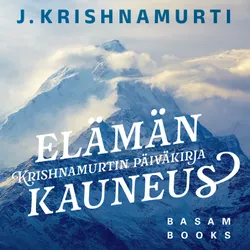
Elämän kauneus : Päiväkirjat 1973-1981
Jiddu Krishnamurti
audiobook
Pourquoi avons-nous peur ?
Jiddu Krishnamurti
audiobook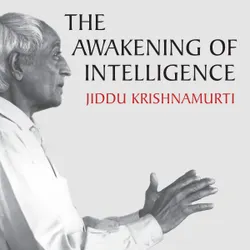
The Awakening of Intelligence
Jiddu Krishnamurti
audiobook
Qué es la meditación
Jiddu Krishnamurti
book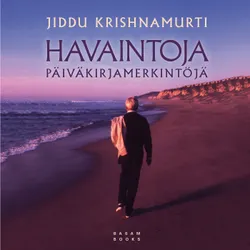
Havaintoja : Päiväkirjamerkintöjä
Jiddu Krishnamurti
audiobook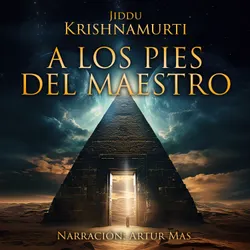
A los Pies del Maestro
Jiddu Krishnamurti
audiobookbook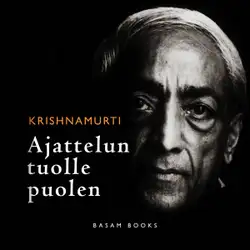
Ajattelun tuolle puolen
Jiddu Krishnamurti
audiobook
La revolución interior : Transformar el mundo
Jiddu Krishnamurti
book
Qué estás buscando
Jiddu Krishnamurti
book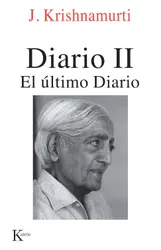
Diario II : El último Diario
Jiddu Krishnamurti
book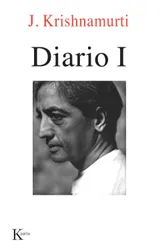
Diario I
Jiddu Krishnamurti
book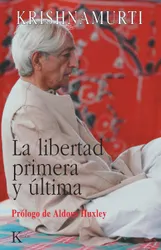
La libertad primera y última
Jiddu Krishnamurti
book
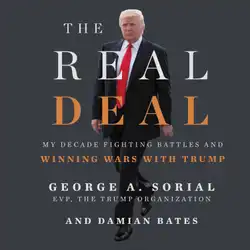
The Real Deal : My Decade Fighting Battles and Winning Wars with Trump
George A. Sorial, Damian Bates
audiobook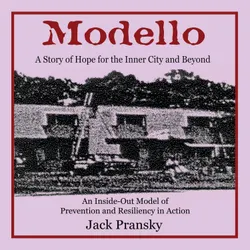
Modello: A Story of Hope for the Inner City and Beyond; An Inside-Out Model of Prevention and Resiliency in Action through Health Realization
Jack Pransky
audiobook
Beyond Trauma
book
Beyond Psychology
Frank A. Gerbode
book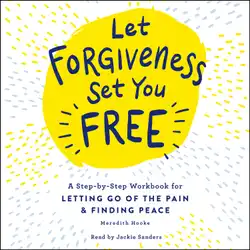
Let Forgiveness Set You Free : A Step-by-Step Guide for Letting Go of the Pain & Finding Peace
Meredith Hooke
audiobook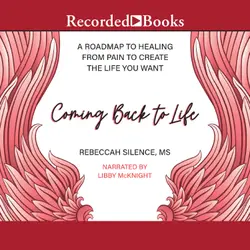
Coming Back to Life : A Roadmap to Healing from Pain to Create the Life You Want
Rebeccah Silence, MS
audiobook
Om at forandre sin tankegang og forvandle verden
Byron Katie
audiobookbook
Six Days of Impossible
Robert Adams
audiobook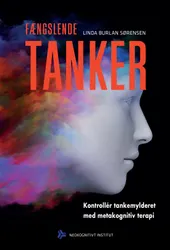
Fængslende tanker : Kontrollér tankemylderet med metakognitiv terapi
Linda Burlan Sørensen
book
Forgiveness Be Damned : A gripping thriller with an emotional twist
L. M. Wasylciw
audiobook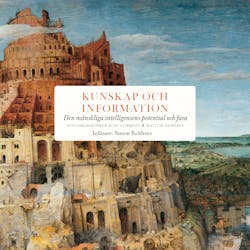
Kunskap och information
Mark Pagel, Mark Plotkin, John Hemming, Jessica Frazier, Richard Miles, Erica Benner, Peter Burke, Nathan Shachar, Suzana Herculano-Houzel, Mariano Sigman, Martin Ingvar, Michael Goodman, Gill Bennett, Simon Mayall, Maria Borelius, Andrew Keen, Nicholas Carr, Peter Frankopan, M. Antoni J. Ucerler, Christopher Coker, Janne Haaland Matláry, Elisabeth Kendall, Claire Lehmann, David Goodhart, Brendan O’Neill, Fraser Nelson, Iain Martin, Adrian Wooldridge
audiobookbook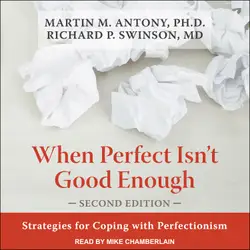
When Perfect Isn't Good Enough
Martin M. Antony, Richard P. Swinson
audiobook
